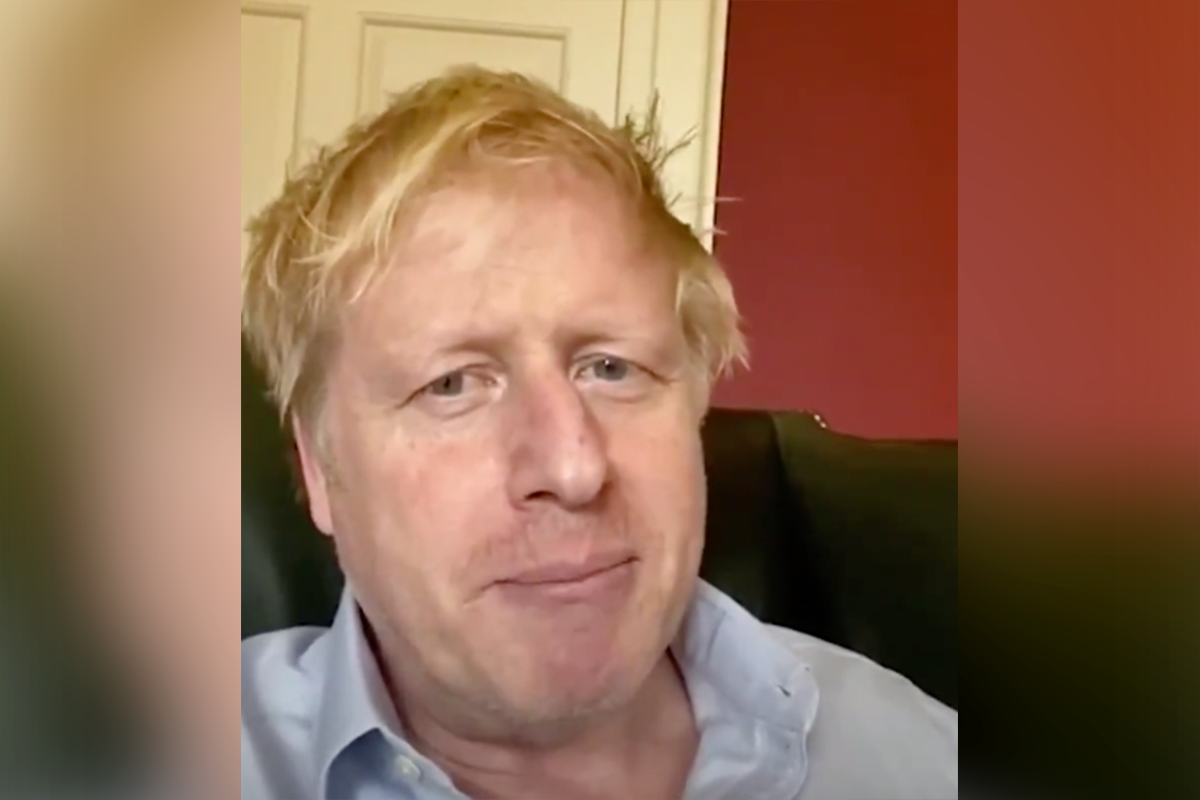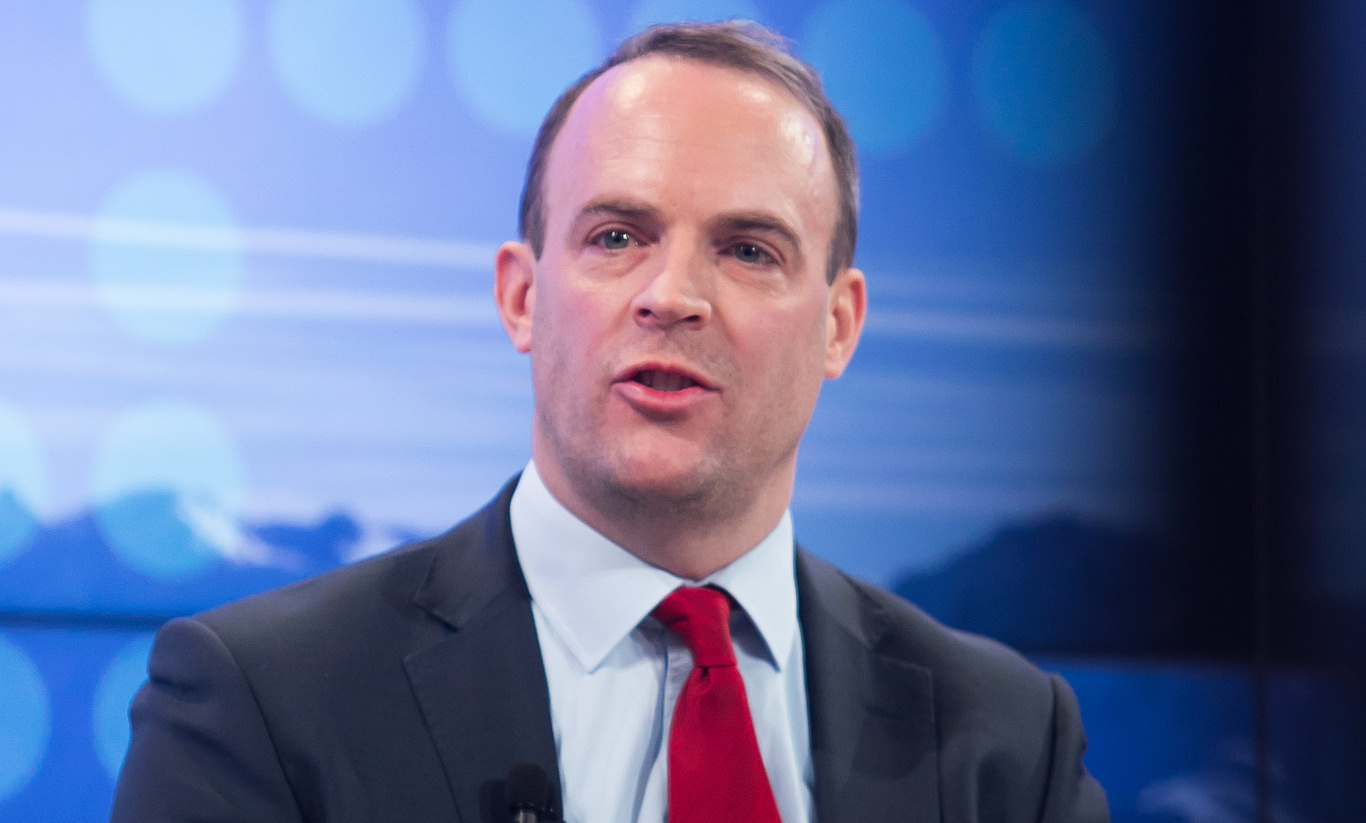Prime Minister Boris Johnson has been moved to an intensive care unit after his Covid-19 condition worsened, Downing Street has said.
Foreign secretary Dominic Raab has been asked to deputise for Johnson “where necessary”, a spokesman added.
The PM has been under the care of doctors at St Thomas Hospital, in London, since Sunday.
Politicians have united in wishing the PM a quick recovery.
Labour leader Keir Starmer tweeted: “All the country’s thoughts are with the Prime Minister and his family during this incredibly difficult time.”
Liberal Democrat MP Layla Moran said: “My thoughts are with Boris Johnson and Carrie Symonds and anyone who is or whose family is in a bad way due to #COVID19.
“This must be so scary. I hope the government can now stop this pretence that all is fine and concentrate on getting him well and reassure the country.”
Chancellor Rishi Sunak said he knows Johnson will “get the best care possible and will come out of this even stronger”.
Johnson first announced that he had tested positive for the virus on 27 March. At the time he said his symptoms were mild and that he would be able to continue to lead the UK’s coronavirus response while in self-isolation.
He was admitted to hospital on Sunday evening in what Downing Street said was a “precautionary step” amid “persistent symptoms,” including a temperature.
In a series of tweets posted on Monday he said he remained in “good spirits” is still in contact with his team as it continues to “work together to fight the virus”.
Raab, as first secretary, is now set to take on some of the PM responsibilities.
Who is Dominic Raab?
Credit: Flickr/World Economic Forum
Dominic Raab, the MP for Esher and Walton, has served as Foreign Secretary in Johnson’s cabinet since July last year.
He had previously served as Brexit Secretary in former prime minister Theresa May’s cabinet but resigned in November 2018 after disagreeing with the PM’s deal.
Raab has been an outspoken critic of the Human Rights Act (HRA), the piece of legislation which embeds international human rights protections as part of our laws.
The Conservative government pledged to “update” this Act in its 2019 election manifesto, five years after the party pledged to scrap it altogether and replace it with a British Bill of Rights.
Yet, as foreign secretary, Raab has sought to bring about a British equivalent of the US’ Magnitsky Act – a way of punishing foreign nationals deemed responsible for human rights abuses.
It is named after late Russian lawyer Sergei Magnitsky, who died in prison in 2009 after discovering corruption among Russain officials.
In January this year the FT reports that he met with his Canadian counterpart to form a western coalition intent on punishing those accused of murder, torture or inhuman treatment of others.
“Our shared mission in the world is not confined to trade and security — it’s also a joint mission to serve as a force for good,” Raab said. “We’ll collaborate closely with Canada to hold to account those responsible for the worst human rights abuses around the world.”
In 2014, in his role as Justice Minister, Raab masterminded plans to replace the HRA, claiming he was worried about the sovereignty of British Parliament and judges, as well as how rights could be expanded.
He also added that he believed the HRA was “rushed” and “flawed”.
In 2011 he said “the tabloids blame everything on the HRA and, in my view, the NGOs think it’s perfect. I think there’s a middle ground. The HRA didn’t do a great deal to protect some of our freedoms – against ID cards, the DNA database, against some of the surveillance where children were followed home from school to check their catchment area.”
He has in the past been dubious about human rights, saying they “run riot”, and are “skewed”.
In a Telegraph column, he pointed to a man who could not be deported following a conviction related to the 2011 London Riots, criticising the right to family life for preventing his immediate deportation, saying “Article 8 is being expanded to protect the criminals’ rights not the families” and making human rights a “dirty word”.
He argued the government should introduce legislation to refuse foreign criminals the right to appeal deportation with their Article 8 rights.


